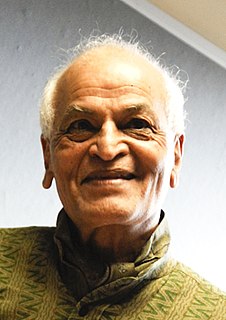
Bubble tea is a Taiwanese tea-based drink invented in Tainan and Taichung in the 1980s. Recipes contain tea of some kind, flavors of milk, and sugar (optional). Toppings, known as "pearls", such as chewy tapioca balls, popping boba, fruit jelly, grass jelly, agar jelly, sago and puddings are often added. Ice-blended versions are frozen and put into a blender, resulting in a slushy consistency. There are many varieties of the drink with a wide range of flavors. The two most popular varieties are black pearl milk tea and green pearl milk tea.

Sweet tea is a popular style of iced tea commonly consumed in countries such as the United States, Malaysia, and Indonesia. Sweet tea is most commonly made by adding sugar or simple syrup to black tea either while the tea is brewing or still hot, although artificial sweeteners are also frequently used. Sweet tea is almost always served ice cold. It may sometimes be flavored, most commonly with lemon but also with peach, raspberry, or mint. The drink is sometimes tempered with baking soda to reduce its acidity.

Tea is an aromatic beverage commonly prepared by pouring hot or boiling water over cured leaves of the Camellia sinensis, an evergreen shrub (bush) native to East Asia. After water, it is the most widely consumed drink in the world. There are many different types of tea; some, like Darjeeling and Chinese greens, have a cooling, slightly bitter, and astringent flavour, while others have vastly different profiles that include sweet, nutty, floral or grassy notes. Tea has a stimulating effect in humans primarily due to its caffeine content.

Anne of Green Gables is a 1908 novel by Canadian author Lucy Maud Montgomery. Written for all ages, it has been considered a classic children's novel since the mid-twentieth century. Set in the late 19th century, the novel recounts the adventures of Anne Shirley, an 11-year-old orphan girl, who is mistakenly sent to two middle-aged siblings, Matthew and Marilla Cuthbert, who had originally intended to adopt a boy to help them on their farm in the fictional town of Avonlea on Prince Edward Island. The novel recounts how Anne makes her way through life with the Cuthberts, in school, and within the town.

The Green Hornet is a fictional masked crime-fighting superhero created in 1936 by George W. Trendle and Fran Striker, with input from radio director James Jewell. Since his 1930s radio debut, the character has appeared in numerous serialized dramas in a wide variety of media. The Green Hornet appeared in film serials in the 1940s, a television show in the 1960s, multiple comic book series from the 1940s on, and a feature film in January 2011. The franchise is owned by Green Hornet, Inc., who license the property across a wide variety of media that includes comics, films, TV shows, radio and books. As of the 2010s, the comic-book rights are licensed to Dynamite Entertainment.

Green tea is a type of tea that is made from Camellia sinensis leaves and buds that have not undergone the same withering and oxidation process used to make oolong teas and black teas. Green tea originated in China, but its production and manufacture has spread to many other countries in Asia.

Satish Kumar is an Indian British activist and editor. He has been a Jain monk, nuclear disarmament advocate, pacifist, and is the current editor of Resurgence & Ecologist magazine. Now living in England, Kumar is founder and Director of Programmes of the Schumacher College international centre for ecological studies, and of The Small School. His most notable accomplishment is the completion, together with a companion, E. P. Menon, of a peace walk of over 8,000 miles in 1973–4, from New Delhi to Moscow, Paris, London, and Washington, D.C., the capitals of the world's earliest nuclear-armed countries. He insists that reverence for nature should be at the heart of every political and social debate.

PG Tips is a brand of tea in the United Kingdom, manufactured by Unilever UK.

Walt Disney Studios Park is the second of two theme parks built at Disneyland Paris in Marne-la-Vallée, France, which opened on 16 March 2002. It is dedicated to show business, themed after movies, production, and behind-the-scenes. In 2017, the park hosted approximately 5.2 million guests, making it the third-most visited amusement park in Europe and the 22nd-most visited in the world. Its sister park is Disney's Hollywood Studios at Walt Disney World in Florida.

The Langham, London is one of the largest and best known traditional-style grand hotels in London, England. It is in the district of Marylebone on Langham Place and faces up Portland Place towards Regent's Park.
Culture of Pakistan is intertwined with the culture of the broader Indian subcontinent and Central Asia. Comprises numerous ethnic groups: the Punjabis, Saraikis, Pothwaris, Kashmiris, Sindhis, Muhajirs, Makrani in the south; Baloch, Hazaras and Pashtuns in the west; and the Dards, Wakhi, Baltis, Shinaki and Burusho communities in the north. The culture of these Pakistani ethnic groups have been greatly influenced by many of its neighbours, such as the other South Asian, Iranic, Turkic as well as the peoples of Central Asia and West Asia.

Green Tea is a 2002 Chinese film. It was adapted from the novel Adiliya by the River by Jin Renshun. Shot in the summer of 2002, Green Tea was one of three films directed by Zhang Yuan that year. The film was photographed by established Hong Kong-cinematographer Christopher Doyle, whose work gives Green Tea a more polished look than many of Zhang's earlier independent features.

Tea culture is defined by the way tea is made and consumed, by the way the people interact with tea, and by the aesthetics surrounding tea drinking.

Tea Leaf Green (TLG) is a four-piece jam band from the San Francisco Bay Area, composed of Josh Clark, Trevor Garrod, Scott Rager (drums), and Eric DiBerardino (bass).

Tea for Two is a 1950 American musical film directed by David Butler. The screenplay by Harry Clork and William Jacobs was inspired by the 1925 stage musical No, No, Nanette, although the plot was changed considerably from the original book by Otto Harbach and Frank Mandel; and the score by Harbach, Irving Caesar, and Vincent Youmans was augmented with songs by other composers.

The Mind of Mr. J. G. Reeder is a collection of short stories by the English crime writer Edgar Wallace, published in 1925.

Aracha (荒茶), also known as Unrefined or Crude Tea, is a type of green tea produced in Japan. Unlike most other teas, aracha green tea is produced using the entire leaf of the tea plant, including the leaf blade, leaf stem, broken particles of the leaf, and the fine leaf hair. This often gives the tea a deep green colour and a bold taste though variations are greatly affected by the cultivation and production processes.

Sencha (煎茶) is a type of Japanese ryokucha which is prepared by infusing the processed whole tea leaves in hot water. This is as opposed to matcha (抹茶), powdered Japanese green tea, where the green tea powder is mixed with hot water and therefore the leaf itself is included in the beverage. Sencha is the most popular tea in Japan.
Green Tea is the title of a series of topical comedy pieces broadcast each weekend on RTÉ Radio 1, starring Oliver Callan.
















